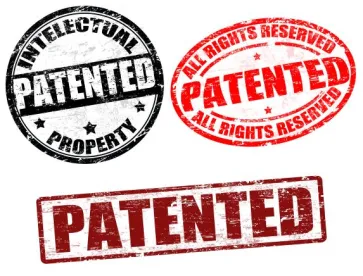In General Electric Co. v. United Technologies Corp., Case No. IPR2017-00491 (PTAB July 6, 2017) (Weatherly, APJ) (designated precedential on Sept. 9, 2019), the Patent Trial and Appeal Board (PTAB) declined to institute review because the petitioner had properly filed a statutory disclaimer under 35 USC § 235(a) that disclaimed all of the claims challenged in the petition. Under 37 CFR § 42.107(e), if the patent owner files a statutory disclaimer “disclaiming one or more claims in the patent” prior to its preliminary response, “[n]o inter partes review will be instituted based on disclaimed claims.” For a disclaimer to be timely “recorded” in the US Patent and Trademark Office, the disclaimer must:
-
Be signed by an authorized party
-
Identify the claims of the patent to be disclaimed
-
State the extent of the patentee’s ownership interest in the patent
-
Include the required fee.
Having determined that the patent owner’s filing was proper and had timely disclaimed all of the challenged claims, the PTAB declined to institute review.
In Infiltrator Water Technologies, LLC v. Presby Patent Trust, Case No. IPR2018-00224 (PTAB Oct. 1, 2018) (Kennedy, APJ) (designated as precedential on Sept. 9, 2019), the PTAB vacated its institution decision based on the US Court of Appeals for the Federal Circuit’s decision in Click-to-Call (IP Update, Vol. 21, No. 9). The PTAB determined that because the petitioner had been served with a complaint more than one year prior to the filing date of the petition, it was time barred under § 315(b). Petitioner had argued that the holding in Click-to-Call was limited to whether voluntary dismissal nullified the effect of “service.” By contrast, the instant case was dismissed for lack of personal jurisdiction, which, according to Fed. R. Civ. P. 4(k), means that “service on a defendant is not effective when the district court that issued the summons lacks personal jurisdiction.” The PTAB disagreed, reasoning that Rule 4(k) governs when “[s]erving a summons or filing a waiver of service establishes personal jurisdiction over a defendant,” not whether a particular a complaint was “effectively served” or not done in a manner prescribed by law. Accordingly, the PTAB determined that dismissal for lack of personal jurisdiction does not nullify the effect of service for purposes of § 315(b).
In Cisco Systems v. Chrimar Systems, Inc., Case No. IPR2018-01511 (PTAB Jan. 31, 2019) (Weinschenk, APJ) (designated as precedential on Aug. 29, 2019), the PTAB determined that a petitioner is barred if it has previously filed an invalidity action in district court, even if it voluntarily dismissed that previously filed action. Under § 315(a)(1), a petitioner is barred if it (or its real party in interest) “filed a civil action challenging the validity of a claim of the patent.” In this case, petitioner argued that because it voluntarily dismissed its previously filed district court action, the dismissal nullified the prior filing as if it never existed. The PTAB disagreed, extending to § 315(a)(1) the same reasoning applied in Click-to-Call, where the Federal Circuit found that voluntary dismissal does not nullify being “served with a complaint” for purposes of § 315(b). Similarly, for purposes of “filing” under § 315(a)(1), a voluntary dismissal does not nullify its effect on a petitioner’s prior district court filing.



 />i
/>i

